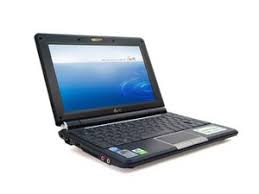
The Rise and Fall of Netbook Laptops
Netbook laptops, a compact and lightweight computing device, gained popularity in the late 2000s as a budget-friendly alternative to traditional laptops. These mini-laptops were characterized by their small form factor, low cost, and portability.
Equipped with modest hardware specifications, netbooks were primarily designed for basic tasks such as web browsing, email, and word processing. Their affordability made them appealing to students, travelers, and casual users looking for a secondary computing device.
However, the rise of tablets and smartphones in the early 2010s posed a significant challenge to the netbook market. Consumers began favoring touchscreen devices with mobile operating systems over traditional netbooks running desktop operating systems.
As a result, sales of netbook laptops declined rapidly, leading many manufacturers to discontinue their netbook lines. By the mid-2010s, the era of netbook laptops had come to an end.
While netbooks may no longer be as popular as they once were, their legacy lives on in the evolution of ultrabooks and other compact laptop designs. The concept of a lightweight and portable computing device continues to influence modern laptop design trends.
Understanding Netbooks: Common Questions and Comparisons with Laptops and Chromebooks
- What are netbooks used for?
- What replaced the netbook?
- Can you still buy a netbook?
- Which is better netbook or Chromebook?
- Which is better netbook or laptop?
- What’s a netbook laptop?
What are netbooks used for?
Netbooks are commonly used for a variety of basic computing tasks such as web browsing, email, word processing, and multimedia consumption. Due to their compact size and lightweight design, netbooks are often favored by students, travelers, and individuals seeking a portable secondary computing device. While not suitable for demanding tasks like gaming or video editing due to their modest hardware specifications, netbooks excel at providing a convenient and affordable solution for everyday computing needs on the go.
What replaced the netbook?
In the ever-evolving landscape of technology, netbooks were largely replaced by tablets and ultrabooks. Tablets offered a more intuitive touchscreen interface and a greater focus on mobility, while ultrabooks provided a balance of portability and performance with sleek designs and powerful hardware. The shift towards these devices marked the end of the netbook era, as consumers sought more versatile and feature-rich computing options that better suited their needs in an increasingly mobile-centric world.
Can you still buy a netbook?
Yes, while netbooks are no longer as widely available as they once were due to declining popularity, you can still find them for sale through certain retailers or online marketplaces. Some manufacturers may still produce limited quantities of netbook models, catering to niche markets or specific customer preferences. However, it is important to note that the selection of netbooks available for purchase is much more limited compared to a few years ago, with many consumers now opting for more powerful and versatile computing devices such as laptops, tablets, or 2-in-1 hybrids.
Which is better netbook or Chromebook?
When comparing netbooks and Chromebooks, it’s important to consider their key differences. Netbooks are compact laptops that typically run on traditional desktop operating systems like Windows or Linux, offering more flexibility in terms of software compatibility. On the other hand, Chromebooks run on Google’s Chrome OS, which is designed for web-based applications and cloud computing. Chromebooks are known for their fast boot times, security features, and seamless integration with Google services. Ultimately, the choice between a netbook and a Chromebook depends on individual preferences and needs, with netbooks offering more versatility in software usage while Chromebooks excel in simplicity and efficiency for web-based tasks.
Which is better netbook or laptop?
When comparing a netbook to a traditional laptop, the choice ultimately depends on individual needs and preferences. Netbooks are ideal for users seeking a lightweight and budget-friendly option for basic tasks like web browsing and word processing. On the other hand, laptops offer more power, larger screens, and enhanced capabilities suitable for demanding applications such as gaming or video editing. Consider factors such as portability, performance requirements, and budget constraints to determine whether a netbook or laptop is the better choice for your specific use case.
What’s a netbook laptop?
A netbook laptop is a compact and lightweight computing device that gained popularity in the late 2000s as a budget-friendly alternative to traditional laptops. Characterized by their small form factor, low cost, and portability, netbooks were designed for basic tasks such as web browsing, email, and word processing. While they were once a popular choice for students, travelers, and casual users seeking an affordable secondary computing device, the rise of tablets and smartphones in the early 2010s led to a decline in netbook sales. Despite their waning popularity, the legacy of netbook laptops continues to influence modern laptop design trends toward lightweight and portable devices.
